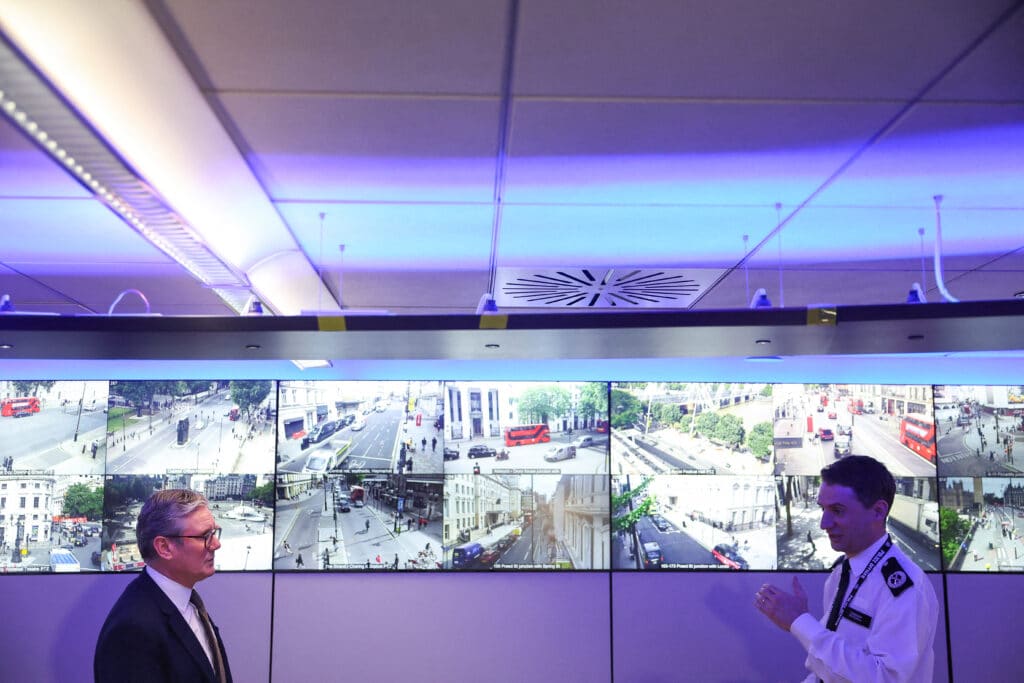Train drivers in England set to end strikes

Britain’s Prime Minister Keir Starmer (L) speaks with Commander Ben Russell besides CCTV screens in the Engineering Suite in the Metropolitan Police Command and Control Special Operations Room at Lambeth Police Headquarters in London on August 9, 2024. – Starmer said that authorities “have to stay on high alert going into this weekend”, amid fears of further far-right riots in English towns and cities. (Photo by Toby Melville / POOL / AFP)
Train drivers in England on Thursday looked set to end a long-running pay dispute, paving the way for the new UK government’s plan to renationalize the country’s rail services.
The expected settlement follows two years of strikes across various sectors of the economy, with train drivers the latest to settle their claims.
The back-dated pay offer will see train drivers receive between 4.5 and five percent a year for the 2019-2024 period.
READ: Transport groups press three-day strike
Train drivers union Aslef called it a “good offer” and general secretary Mick Whelan said the deal would be put to a vote of members with a recommendation to accept.
“We have achieved more in the last four weeks of a Labour government than we managed under a Tory government that set out to destroy us,” Whelan said.
The Conservatives — voted out in July’s general election — accused Prime Minister Keir Starmer’s Labour government of having “caved to the unions”.
Train drivers first walked out in July 2022 amid a growing cost of living crisis across the UK, followed by other groups including doctors, civil servants, ambulance staff, teachers and border staff.
Those who have ended their strike action recently include senior specialist doctors who settled in April, while junior doctors are currently considering an offer worth more than 22 percent on average over two years.
The last government initially offered train drivers two percent, arguing that more was unaffordable and would drive inflation which at the time remained stubbornly high.
If accepted, the new offer would draw a line under the disruption to rail services and “allow us to move forward by driving up performance for passengers with the biggest overhaul to our railways in a generation,” said Transport Minister Louise Haigh.
The government last month put forward plans to renationalise the country’s rail services, most of which are privately owned.
Draft legislation outlined proposals to bring rail operators into public ownership when the private contracts expire — or sooner in the event of poor management.
READ: UK gov’t offers junior doctors 22.3% pay rise to end strikes
A new body to manage rail services will be named Great British Railways.
The privatisation of rail operations took place in the mid-1990s under the Conservative prime minister John Major, but the rail network remained public, run by Network Rail.
Four out of 14 operators in England have been taken over by the state in recent years due to poor performance, but this was meant to be a temporary fix before a return to the private sector.
The main rail operators in Scotland and Wales, where transport policy is handled by the devolved administrations in Edinburgh and Cardiff, are also state-owned.